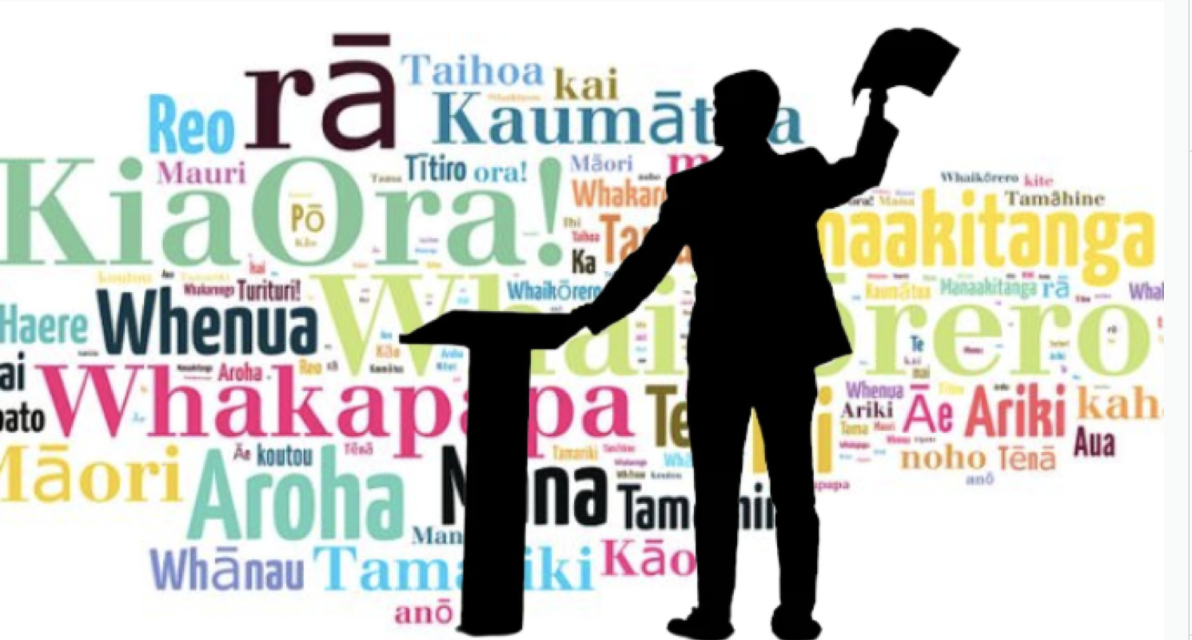Oh God! It’s Maori Language Week. I have no problem with people who speak or are trying to learn Maori, in the same way that I have no problem with those who are learning French, Japanese or Swahili, but we are not having those languages rammed down our throats by a media paid to drive the narrative in one particular direction. Also, there is no incentive to learn Maori as I have never met a Maori person who does not speak fluent English, and the object of language is to communicate… not to subjugate.
To celebrate, our precious little snowflake, Lorde, has produced a mini-album, all in Te Reo. What a pure heroine she is. She can virtue signal along with the very best over this one… except, she can’t. Because a very well-known and respected Maori performer, choreographer and director of the Atamira Dance Company has shone a light on Lorde’s tokenism, and his views are not complimentary to our favourite snowflake.
First, just read a little bit about Jack Gray‘s history and personal philosophy.
Living an urban Maori experience is my unique view on the world. It influences absolutely everything.
I have had to unlearn so much, to survive in this system. I’ve adjusted every part of me and my work in the world has been to address it. It’s a merry-go-round, where parts of you are wanted, other parts aren’t seen or heard, other parts are unrequired.
My Maoriness isn’t about a set way in the world. It can’t be because we don’t live in a Maori world without others. But it is about fluidity and adaptation.
And it’s here where misinterpretation occurs. And why it is again important to listen to one’s feelings, to trust our instincts and to do the work.
Here is an artist who makes no apologies. He trusts his instincts and his own skills. He is clearly someone who deserves some respect.
He then goes on to explain that he was asked to assist with Lorde’s new Te Reo album. What happened next was surprising.
Long story short I was invited to choreograph all the videos to the album and to name the cost.
After some initial meetings to which they talked about her and for her, and I only chatted to her once. I was invited to submit some ideas after looking at the mood boards they had already done.
To be honest, I was uncomfortable.
I did not recognise the themes as coming from a perspective I was familiar with. It was a kaleidoscope of some shallow, self-centred, pop artist’s ponderings. She had little actual understanding of the way that her concepts were so white.
I did the work of trying to find a strategy that I would feel remotely comfortable with and put the concepts forward. I was speaking solely to the company producers, who the more I talked and raised my concerns, they looked…. uncomfortable.
I kept saying that we don’t want to misappropriate, and that I would have to work in a way that I was used to, which is to get to know the talent and to work in the land (a tropical beach location) to be able to give glimpses of the ideas they wanted (a utopian community) without having to resort to stereotypes.
They weren’t there to listen to a Maori artist express his concerns. They wanted product. And they wanted Western product by a Maori name. It ended abruptly and the meeting was cut short.
The next day I get an email saying, “after some discussion we have decided to get another choreographer as Ella is used to working in a specific way”.
She didn’t want anything from real Maoridom. She just wanted to make herself look good and diverse.
So with yesterday’s album drop, I admit I was disappointed to see tokenism in full force.
From my personal experience, the record company couldn’t have given a flying fuck about my Maoriness. And yet oh so willing to row the waka onshore when it suited them.
Lorde gets to manifest a vision that isn’t hers. It’s a collaboration in which her celebrity-tanga is the focal point.
The Big Idea
He is right. It is all just tokenism. I am impressed though, that he was quite prepared to walk away – that, for him, it was about more than the dollars or the fame it might have brought him. He is not to be bought and paid for.
Imagine having a conversation with a Frenchman that goes something like this:
“Bonjour Monsieur. Comment ça va?” (Hello, how are you?)
“Tres bien, merci, et vous?” (Fine thanks, and you?)
“Yeah, good mate… listen, can you tell me the way to the station?”
The average Frenchman would react very badly to this type of conversation, but… isn’t this exactly what Ashley Bloomfield does every day on his 1pm presser?
“Kia ora koutou ka toa.
Today we have 20 new cases in the community….”
In other words, what he is saying is… let’s get the tokenism out of the way to appease the Maori and then get on with the important stuff of the day.
Do you think that is okay?
If I were Maori, I would feel insulted by the whole thing. It is patronising and unnecessary. As I said, I haven’t met a Maori yet who cannot converse perfectly well in English, and it is not Maori in general who are asking us to speak their language.
No. That would be the patronising white people, the elite, better than anyone else, who think they can throw Maori the occasional bone and give them a pat on the head and they will be happy.
Like Jack Gray, I am thoroughly sick of seeing tokenism in full force, and we will see a lot of it this week.
The point of it all, however, escapes me completely. Many Maori may need help, but they don’t need this.
Please share this article

